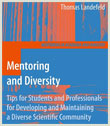As seen from www.justgarciahill.org, PROGRESS MAGAZINE Spring 2006 Vol.3 , No. 3
By Thomas Landefeld
What role does white privilege play in the current national movement against minority-targeted programs? And, perhaps more importantly, what role can white privilege play in turning this movement around? Although white privilege is rarely acknowledged or discussed, it influences every aspect of success in our society. So what is it? It is the social inheritance of rights, advantages, power, and opportunities by those who are white.
Is white privilege the reason for the assault on minority programs at SIU-Carbondale, SUNY, and other academic institutions? Is it the reason for the “Civil Rights Initiative” on the November ballot in Michigan? Is it the reason behind a 40% decrease since 2001 in gender/racial discrimination prosecutions by the Civil Rights Division of the Justice Department? Is it the reason behind the continued pressure from the Center for Equal Opportunity to eliminate affirmative action and create what they call a “colorblind society”?
Those who oppose affirmative action generally assert that minority-focused programs or other attempts to increase diversity in academia or elsewhere constitute “racial preferences”, and are therefore illegal. But these arguments conveniently fail to remember the hundreds of years of racial preferences and inherited wealth that created a society still so decidedly un-colorblind that this year’s Oscar-winning film, “Crash” was devoted to the subject. Many people long for a colorblind society. But so far it seems that only those with white privilege think that we’re already living in one. So why is that?
Perhaps those with white privilege – by definition, anyone who is white – feel threatened by the specter of losing their privilege. Illinois Senator Barack Obama asserts that the recent actions may be an attempt to distract public attention away from President Bush’s sagging popularity, or may simply be yet another wedge issue, again usually used as a polarizing distraction.
Regardless of the reason, these actions are occurring and will continue to occur. This assault on minority programs is especially a concern if the group who has enjoyed white privilege is unwilling to act. So what will it take for this to happen?
First, white people must not only recognize the negative effect of this movement, but must also be willing to speak out and take action. Some individuals such as Robert Jensen (The Heart of Whiteness: Confronting Race, Racism and White Privilege) and Tim Wise (Affirmative Action: Racial Preference in Black and White; White Like Me: Reflections on Race from a Privileged Son) have already established national reputations through presentations, articles, and books.
Unfortunately, the actual number of these individuals is too low to have a major impact, quite simply because those with white privilege not only have to acknowledge its role in racism, but must also sacrifice some of their white privilege to fight it. And why would anyone do that? Speaking for myself, it is because it is the right thing to do.
Even given a critical mass, any group defending affirmative action would have to have a national podium to be effective. Certainly, The Center for Equal Opportunity is a very proactive, well-connected group that has support, and therefore a national podium for speaking out. Unfortunately, for those of us who are opposed to their actions, we are reacting almost singularly, or at best as small groups. Needless to say, that scenario is a losing battle. So, we must unite and advocate proactively, especially right now, when politically, we know that this is a difficult struggle.
In doing so, we must remember the words of Frederick Douglass: “Without struggle, there is no progress”. We must go forward in the struggle to make progress and change!

